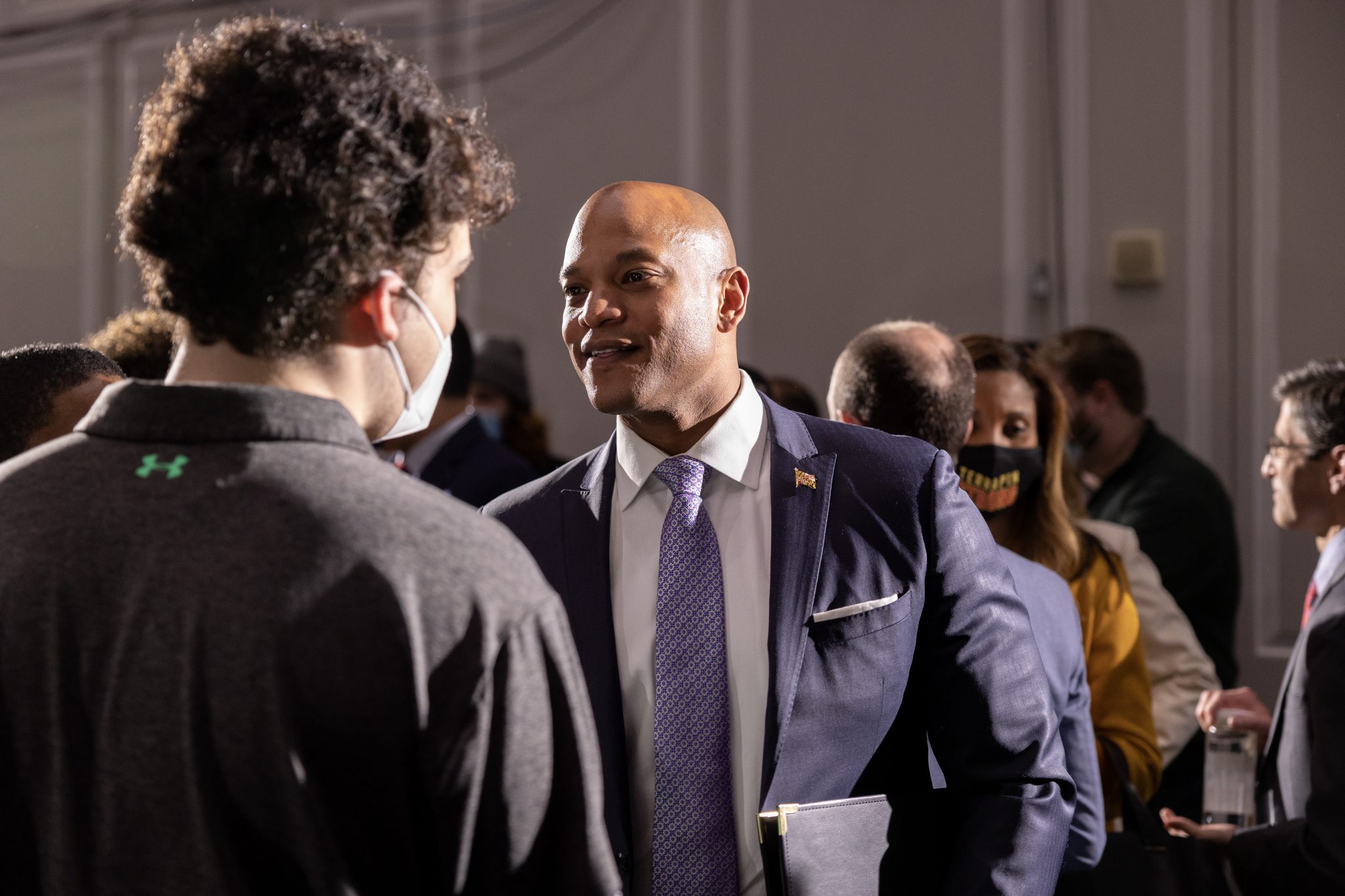Views expressed in opinion columns are the author’s own.
There is no doubt in my mind that Wes Moore, up 22 percentage points over Republican governor nominee Dan Cox in a new poll, is set to be Maryland’s next governor — and our first Democratic governor since 2015. As such, Moore must prepare to begin correcting the course for Maryland’s public schools from day one.
COVID-19 took a dark toll on our public schools. Maryland Gov. Larry Hogan’s disastrous policy decisions over the past seven years set us up for failure — and continued to compound it. These issues have had a marked impact in Prince George’s County, where key indicators of academic success took enormous hits.
Meanwhile, Moore’s education proposals lack the key components necessary to, first, undo the damage done, and second, turn Maryland schools into national leaders in educational equity. Particularly, he needs to commit to making further investments in our public schools, taking on stronger school policing reforms and standing up for students’ rights.
Hogan has repeatedly attempted to stunt education funding, going so far as to use the COVID-19 pandemic, which made the funding even more crucial, as an excuse. The Blueprint for Maryland’s Future, which passed after the General Assembly’s override of Hogan’s veto, is a transformative piece of legislation, but it’s still not enough.
Students are not just struggling to get to school, but also are not learning sufficiently once there. From massive staff shortages to exacerbated student mental health issues, Maryland’s public school teachers will require extraordinary investments over the next several years. On top of that, Hogan spent his tenure waging war on teachers, once calling them “thugs.” These actions are even more senseless given their profession’s increasing challenges and dwindling resources.
Accordingly, Moore has to ensure enough funding to follow through on his promises to raise the salaries of public school teachers and education support professionals. He must also strengthen their collective bargaining rights, including enabling organization for smaller class sizes.
Supplemental funds should be allocated toward mental health services in particular. In Maryland, our student-per-counselor and student-per-psychologist ratios dramatically excede standards recommended by school counseling experts. Additional recruitment and retention is necessary both to ease burdens on staff members and to tackle the ongoing student mental health crisis.
Students’ mental health issues have only been exacerbated by COVID-19, which widened existing racial and economic disparities in our schools. The academic success and mental health of low-income students and students of color have been disproportionately set back. Our state’s response presents an opportunity to steadfastly address these long-standing issues.
Moore must also be more willing to take bold action on school policing programs, another area where Hogan’s record has been abysmal. Evidence shows that not only do armed police officers directly facilitate the school-to-prison pipeline, disproportionately criminalizing students of color, but in the process, they still fail to prevent serious school violence.
In his education plan, Moore acknowledges fighting the school-to-prison pipeline as a key goal, but he does not make any commitments to reducing the presence of armed police officers stationed in our public schools. Instead, he simply asserts they should not be involved in school disciplinary decisions, which is an inadequate solution.
That won’t stop police officers from arresting students, whether physically or through issuing citations and referrals, which entrench young people in the criminal justice system. The plan itself points out Black students in Maryland face disproportionate levels of arrest. Yet, its proposed solution doesn’t do much about it.
Moore can follow the leadership of his running mate, Aruna Miller, in supporting major overhauls of school policing programs. Miller, the Democratic nominee for lieutenant governor, said at a Q&A session hosted by the Maryland Student Coalition in March that she personally opposes police officers’ presence in schools — but made clear it was not an official campaign stance. Moore should make it one.
Equally important, Moore must radically embrace the rights and needs of students as Virginia Gov. Glenn Youngkin uses the phrase “parents’ rights” to target transgender and gender non-conforming students, prevent teachers from imparting our nation’s history to students and investigate those who do.
Moore must defend LGBTQ+ students who experience numerous educational disadvantages. That means aggressively levying state resources to take on discrimination perpetrated by local jurisdictions, fighting for inclusive curricula and protecting students’ rights to access facilities and activities that correspond with their gender identities.
If the Democratic nominee’s ambivalence on any of these issues are politically motivated and carefully choreographed to avoid controversy, it’s unnecessary against Cox. There is no imperative to run to the right given Moore’s electoral position.
Moore, if he plays his cards right, can be a champion for students and teachers alike and can set a compelling example for states’ commitments to educational equity. But only if he can muster up the political courage to be bold. And only if he starts to prepare right now.
Dhruvak Mirani is a freshman computer science and government and politics major. Mirani can be reached at contact@dhruvak.com.



